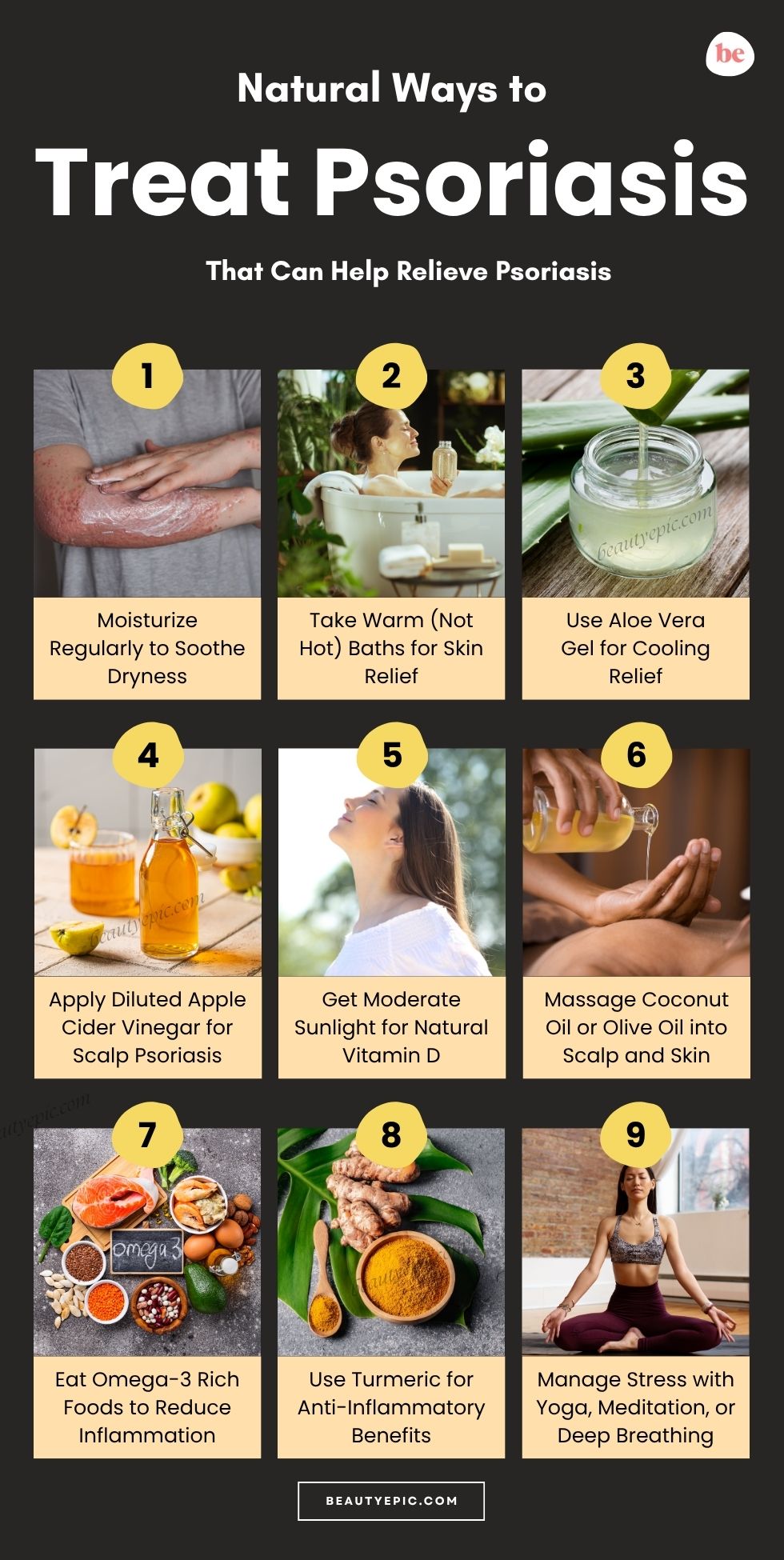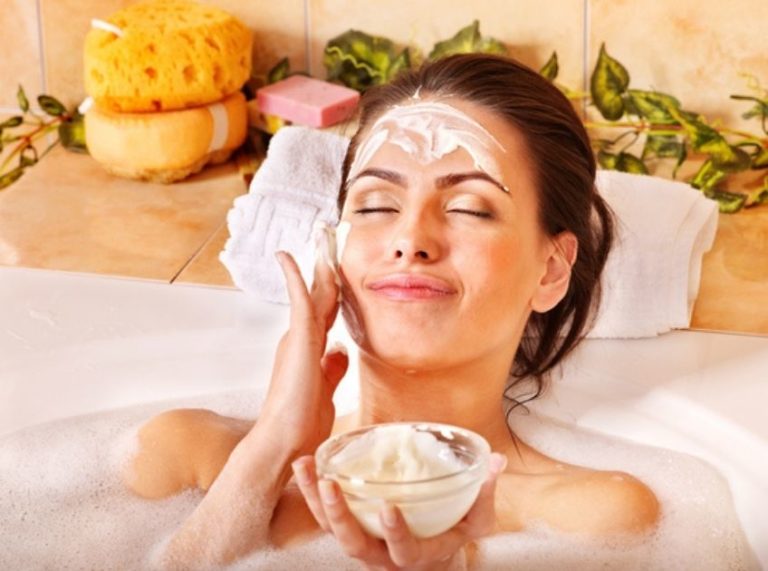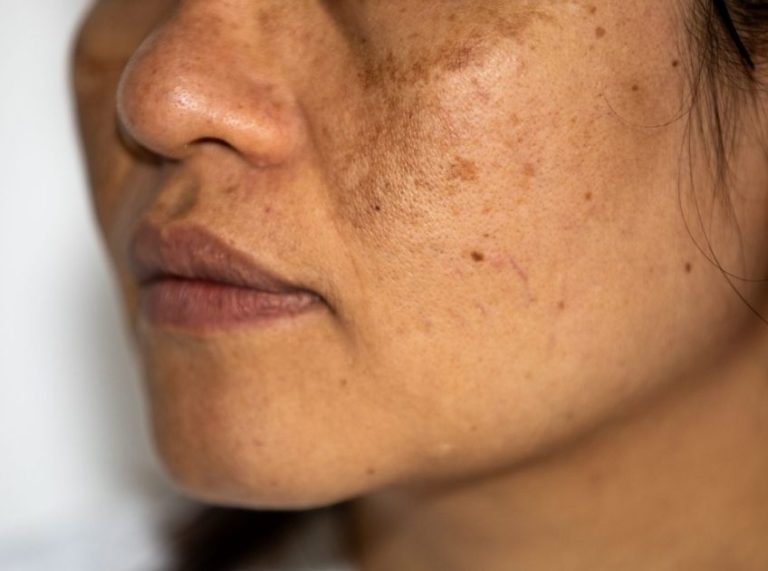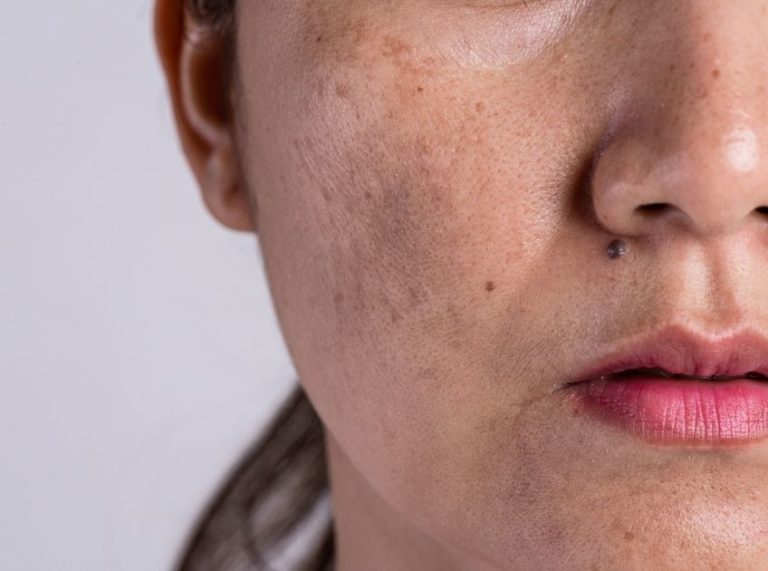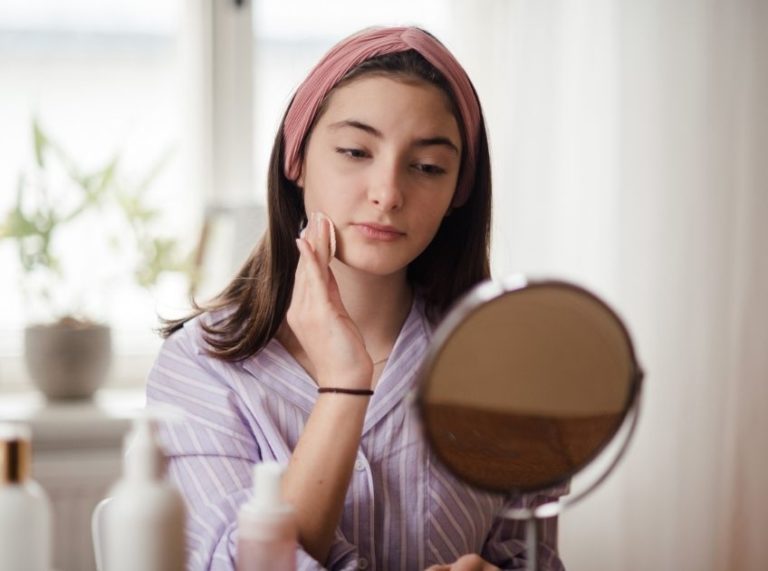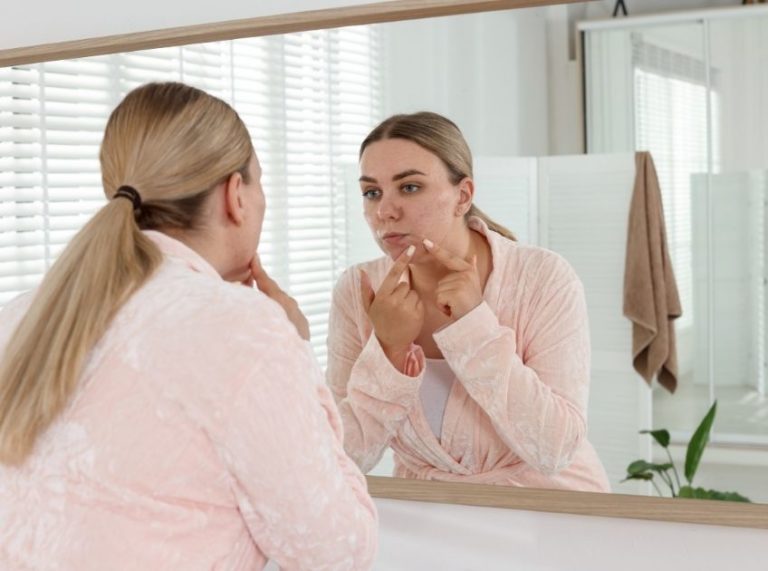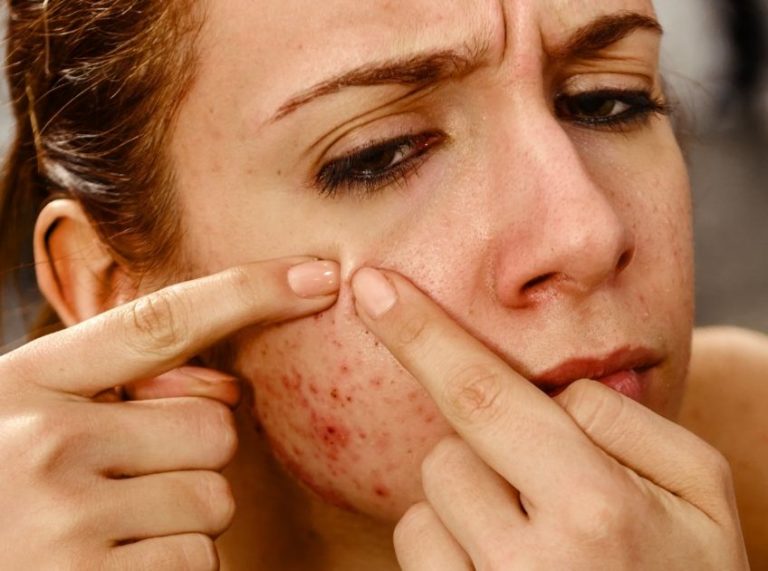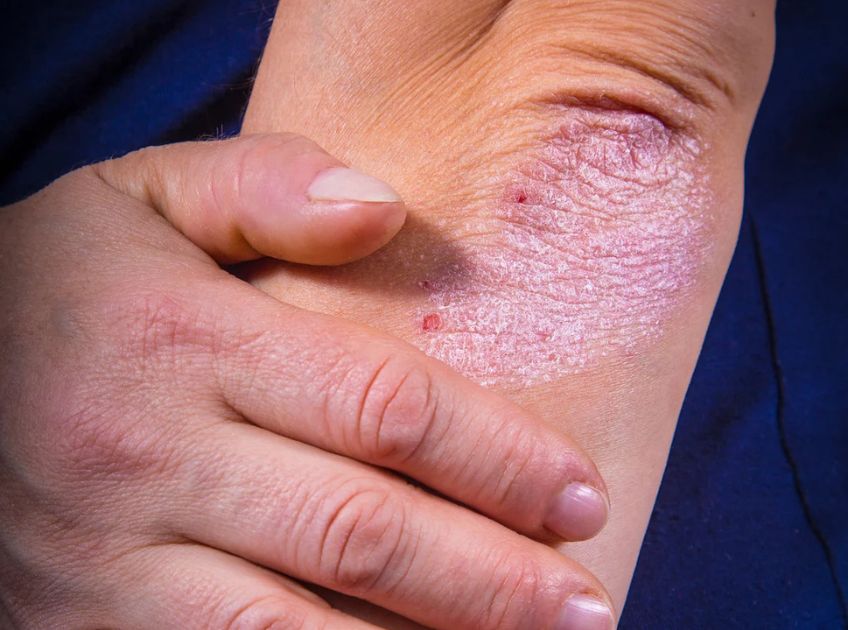
Important: This article is for informational purposes only. Please read our full disclaimer for more details.
Psoriasis is a chronic autoimmune skin condition that causes red, scaly patches, itching, and inflammation. While medical treatments such as topical creams, light therapy, and prescription medications are often essential, many people find that simple home remedies can ease symptoms and improve skin comfort.
In this article, we’ll explore 10 effective ways to treat psoriasis at home, backed by scientific insights and expert recommendations. These methods aren’t a cure but can complement medical care and help reduce flare-ups.
Article Contains
- Moisturize Regularly to Soothe Dryness
- Take Warm (Not Hot) Baths for Skin Relief
- Use Aloe Vera Gel for Cooling Relief
- Apply Diluted Apple Cider Vinegar for Scalp Psoriasis
- Get Moderate Sunlight for Natural Vitamin D
- Massage Coconut Oil or Olive Oil into Scalp and Skin
- Eat Omega-3 Rich Foods to Reduce Inflammation
- Use Turmeric for Anti-Inflammatory Benefits
- Manage Stress with Yoga, Meditation, or Deep Breathing
- Stay Hydrated and Follow a Skin-Friendly Diet
10 Home Remedies That Can Help Relieve Psoriasis
1. Moisturize Regularly to Soothe Dryness
Psoriasis causes the skin to lose moisture quickly, leading to cracked, scaly patches. Applying thick, fragrance-free creams, ointments, or natural oils such as shea butter, coconut oil, or olive oil can lock in hydration. Petroleum jelly is another inexpensive and effective option.
Pro tip: Apply moisturizer right after a bath or shower while the skin is still damp to maximize absorption.
2. Take Warm (Not Hot) Baths for Skin Relief
Soaking in lukewarm water for 10–15 minutes softens scales and reduces itching. Add colloidal oatmeal, Epsom salts, or Dead Sea salts to the bath for extra relief.
A 2012 study in the Journal of Dermatological Treatment found Dead Sea salt baths improved skin hydration and reduced psoriasis scaling (1).
Avoid hot water—it strips natural oils from the skin and worsens irritation.
3. Use Aloe Vera Gel for Cooling Relief
Aloe vera contains aloesin and aloin, compounds known for their anti-inflammatory and healing properties. Applying pure aloe gel or creams with at least 0.5% aloe extract can help reduce redness, itching, and scaling.
A clinical trial (Medical Journal of Australia, 1996) found that 83% of patients using aloe vera cream reported symptom improvement after 4 weeks (2).
Keep aloe gel in the refrigerator before applying—it enhances the cooling effect.
4. Apply Diluted Apple Cider Vinegar for Scalp Psoriasis
Apple cider vinegar (ACV) has natural antimicrobial and antiseptic properties, which may help reduce itching and scaling on the scalp.
- Mix equal parts ACV and water.
- Apply gently to affected scalp areas with a cotton ball.
- Rinse thoroughly after 10 minutes.
⚠️ Never use on cracked or bleeding skin, as it may cause stinging.
5. Get Moderate Sunlight for Natural Vitamin D
Controlled sun exposure helps slow skin cell turnover. Just 5–10 minutes of daily exposure to affected areas may reduce scaling and inflammation.
The National Psoriasis Foundation highlights that UVB rays are beneficial for psoriasis, but overexposure can increase the risk of sunburn and skin cancer (3).
Always use sunscreen on unaffected skin to prevent damage.
6. Massage Coconut Oil or Olive Oil into Scalp and Skin
These oils penetrate thick plaques, soften scales, and make them easier to remove. They also reduce itching and dryness.
Warm the oil slightly before applying to enhance absorption. Leave it overnight for the best results.
7. Eat Omega-3 Rich Foods to Reduce Inflammation
Omega-3 fatty acids found in salmon, sardines, flaxseeds, and chia seeds reduce systemic inflammation.
A 2017 review in the Journal of the American Academy of Dermatology concluded that omega-3 supplements can improve psoriasis severity scores in some patients (4).
If you don’t eat fish, consider a high-quality flaxseed or algae-based omega-3 supplement.
8. Use Turmeric for Anti-Inflammatory Benefits
Turmeric’s active compound, curcumin, has powerful antioxidant and anti-inflammatory effects. It can be taken as a supplement (500–1000 mg daily) or added to food.
A 2018 study in BioMed Research International suggested curcumin, when combined with standard care, significantly reduced psoriasis flare-ups (5).
For best absorption, consume turmeric with black pepper (piperine) and healthy fat.
9. Manage Stress with Yoga, Meditation, or Deep Breathing
Stress is one of the most common triggers for psoriasis flare-ups. Relaxation practices such as yoga, tai chi, mindfulness meditation, or deep breathing can reduce cortisol levels and improve overall well-being.
According to a 2015 review in the Journal of the European Academy of Dermatology and Venereology, stress-management techniques improved psoriasis outcomes when used alongside medical treatment (6).
10. Stay Hydrated and Follow a Skin-Friendly Diet
Dehydration worsens dryness and scaling, so aim for at least 8–10 glasses of water daily. A diet rich in fruits, vegetables, whole grains, and lean proteins supports healthy skin.
Helpful foods: leafy greens, berries, fatty fish, nuts
Foods to limit: processed foods, red meat, alcohol, and refined sugars (as they may worsen inflammation)
Research suggests that a Mediterranean-style diet may reduce psoriasis severity due to its anti-inflammatory profile (7).
Frequently Asked Questions (FAQ’S)
1. Can home remedies cure psoriasis completely?
A. No. Psoriasis is a chronic condition without a permanent cure, but home remedies can reduce symptoms and improve quality of life.
2. Are there foods that worsen psoriasis?
A. Some people report flare-ups from alcohol, red meat, or processed foods. An anti-inflammatory diet may help manage symptoms.
3. When should I see a doctor about psoriasis?
A. If your symptoms worsen, spread rapidly, or cause joint pain (psoriatic arthritis), consult a dermatologist promptly.
Living with psoriasis can be challenging, but small daily habits make a big difference. Moisturizing, eating anti-inflammatory foods, practicing stress management, and using natural remedies like aloe vera or turmeric can help keep flare-ups under control.
